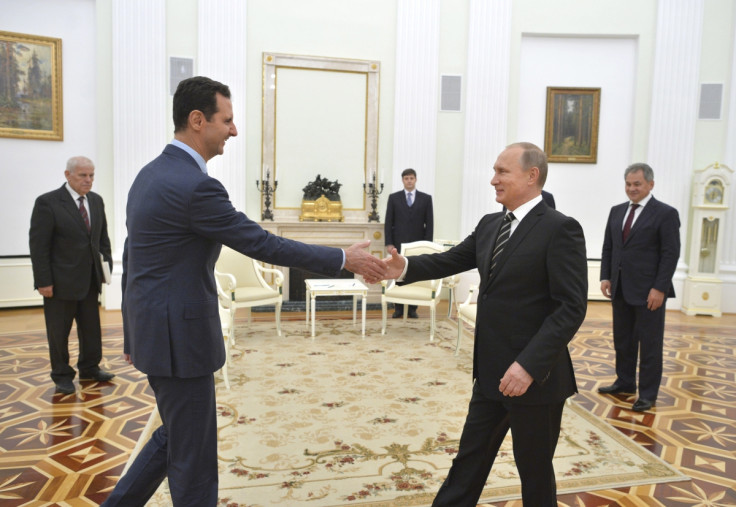What will it take for Putin to turn his back on Assad?
Russia talked a tough talk after US air strikes on Syria, but the Kremlin doesn't want a showdown with Trump.

It has long been understood that Russia will do anything to protect Syria's brutal president, Bashar Assad – especially if told by the United States to drop him as an ally. After all, the Russian president, Vladimir Putin, has staked his reputation on rejecting what he sees as US meddling at every opportunity, be it at home or abroad.
It doesn't help that Russian foreign policy continues to revolve around costly military adventures – whether they be the annexation of Crimea or Russia's military involvement in Syria – that focus on boosting Putin's domestic reputation, rather than practical concerns in a time of economic uncertainty.
Simply put, the West can't necessarily expect Russia to be rational on certain key issues, Syria included. And much of this has to do with Putin's need to maintain a strongman image for his citizens – a need that repeatedly paints him into a corner.
Although Putin continues to be widely popular in Russia, he knows that any concessions to the West (seeming or otherwise) can make him look weak, and that is not something he can afford. He especially cannot do this during a time of increasing domestic protest and subsequent crackdowns.
Still, we should not think of Assad as some sort of sacred cow for Russia. While Russian officials and state news may repeatedly deny any possibility that Assad was just involved in yet another horrific chemical weapons attack against his own people – rumor has it that privately, the Russians are not pleased with the Assad regime at all. And while Russia may talk a tough talk following US air strikes on Syria, all signs point to the fact that the Kremlin is not interested in some dramatic showdown with the Trump administration at this time.
Donald Trump's unpredictability and willingness to switch positions quickly and seemingly randomly is certainly a factor here. As much as Russia has enjoyed being a thorn in Washington's side, it has equally enjoyed having the US as a predictable actor on the world stage. The Kremlin knew what to expect with Obama, but all bets are off with someone as untrustworthy as Trump.
There is another factor here as well, and that is Putin's love of personality politics. Putin had enjoyed rapport with Libya's Muammar Gaddafi, for example, and Gaddafi's death communicated to Putin that he could potentially expect the US to one day turn on the Kremlin as well. It didn't help that Gaddafi's death was so public and brutal, making it easy for Russians to accuse Washington of hypocrisy on issues of law and order in Libya and elsewhere.
It is entirely possible that the Trump administration will be willing to lift sanctions and accept the Russian annexation of Crimea in order to get Putin to dump Assad
Assad, however, is no Gaddafi. For one thing, Assad simply lacks Gaddafi's presence. Putin likes larger-than-life personalities, as evidenced by his outright bromance with Italy's ex-PM Silvio Berlusconi. Opposites attract, and this is especially true in the world of Russian politics, where a reserved ex-KGB agent sees a natural ally in bombastic billionaires and dictators with outlandish lifestyles. The charmless Assad is not a natural fit here.
Of course, Putin is not going to abandon Assad overnight. Like a classic political "mean girl", he won't risk his posse for nothing.
Putin is therefore going to want concessions, and it is entirely possible that the Trump administration will be willing to lift sanctions and accept the Russian annexation of Crimea in order to get Putin to dump Assad. Some Middle Eastern leaders have already floated this scenario – but it is not without its risks, and not just for Ukraine, a country which has repeatedly been used by Russia in a high stakes game of chicken with the West.
Not only may Russia's shadow war in parts of eastern Ukraine grow out of control as the result of concessions, but violent instability may spread to other parts of the region. Russia's souring relationship with Belarus, for example, is a warning that the conflict unleashed in Ukraine may not stay self-contained.
In light of that, international diplomacy today is all about putting out fires – all the while new ones spring up behind your back. The worst part of all is that the Trump administration is yet another dicey variable, as opposed to a bulwark against chaos.
Natalia Antonova is an American journalist and writer who splits her time between Kiev and Moscow.
© Copyright IBTimes 2025. All rights reserved.






















